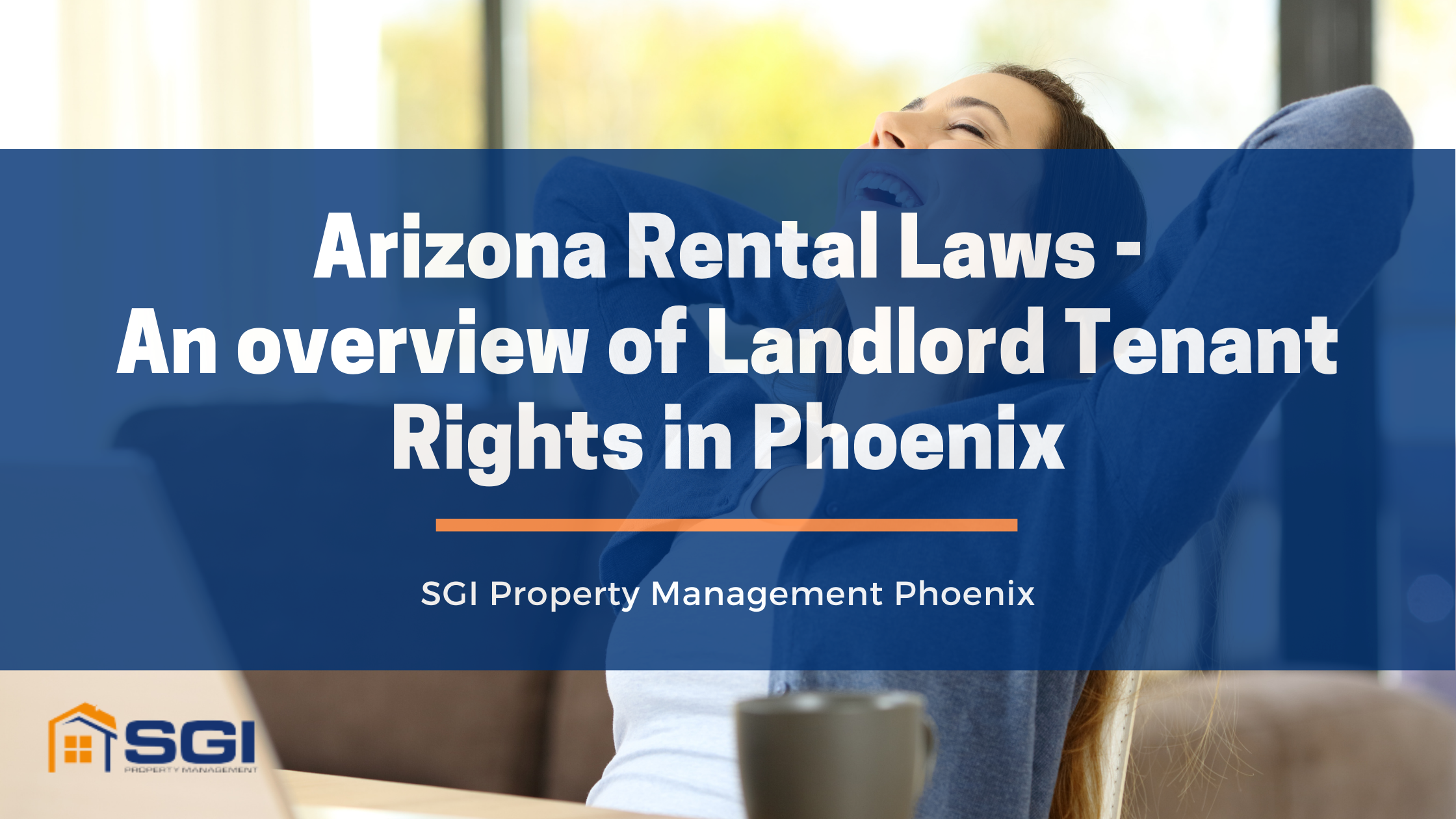
Arizona Residential Landlord and Tenant Act helps protect both parties involved in a lease agreement. In Arizona, these laws are outlined in the Arizona Landlord-Tenant laws.
After prospective tenant signs the lease or rental agreement, they are automatically granted certain rights under the Arizona landlord-tenant laws. For example, the legal right to a habitable rental property with the correct safety standards, the right to fair treatment, and the right to be provided certain disclosures.
As an Arizona landlord, the lease agreement also gives you certain rights, such as the right to collect weekly or monthly payments of rent, the right to enter rented property, and the right to evict a squatter or a tenant for a lease violation.
In this post, we are giving you a basic overview of the Arizona landlord and tenant law, including the rights and obligations of a landlord and renter.
Required Landlord Disclosures in Arizona
As an Arizona landlord, you have a responsibility under the Arizona Landlord and Tenant act to disclose certain information to your tenant. There are certain landlord obligations under these laws. If a landlord fails to do so, there could be consequences. Here is information that a landlord must disclose:
- Move-in Documents. An Arizona landlord must provide a tenant with several documents immediately after they move into their rental house. That is a copy of the written rental agreement, a move-in form specifying any existing damages to the dwelling, and a written notification to the tenant stating their right to be present during the move-out inspection.
- Bedbug Disclosure. A landlord must provide a tenant with educational materials on bedbugs. Also, they must not rent out a unit or property that is currently infested with bedbugs.
- Name and addresses. Landlords must disclose to their tenants the name and address of the owner of the rental unit.
- Security Deposits. An Arizona landlord must also let their tenant know of the amount of any security deposits, as well as their security deposit rights.
- Disclosure of the Arizona Landlord Tenant Act. Before lease or rental agreement signing, Arizona landlords must inform their tenants that the Arizona Landlord and Tenant Act is available on the Arizona Department of Housing’s website.
Tenant Obligations and Rights
When tenants rent a rental property, they have the right to:
- Be provided with certain disclosures as per tenant screening laws.
- Continue living in their rented premises until the landlord has followed the lawful eviction procedure and provided a written notice.
- Withhold next payment of rent if the landlord fails to make needed or requested repairs until the repairs are completed.
- Terminate the lease without any further responsibilities under certain circumstances.
- Live in a habitable rental property provided by the landlord, including all essential services.
- A move-out inspection at the landlord's expense, conducted in a reasonable manner.
- Be treated equally and fairly by the landlord as per the dictates of the Federal Fair Housing Act.
An Arizona tenant also has certain responsibilities. These obligations under the landlord-tenant relationship include:
- Notifying the landlord of issues related to maintenance or repairs.
- Notifying the landlord when looking to vacate their premises.
- Abiding by all terms of the rental agreement.
- Maintaining reasonable noise levels.
- Letting the landlord know when they will be staying out of town for an extended period.

An Overview of the Arizona Residential Landlord-Tenant Laws
1. Fair Housing
In Arizona, much like everywhere else, it’s illegal for landlords to:
- Refuse to make reasonable accommodations to people living with a disability.
- Make false claims about a unit’s availability to new or existing renters.
- Make discriminative advertisements indicating a preference for or against someone based on their protected characteristic and refusing quality rental housing.
- Charge more for a tenant's rent payment or fees under a reasonable cost.
In Arizona, the Fair Housing Act prohibits such actions against a tenant based on their protected characteristic. The characteristics include color, race, sex, disability, familial status, and national origin.
2. Landlord Entry
As an residential landlord in Arizona, you’ll need to enter your tenant’s rented unit at some point in their tenancy. Common reasons for entry of a landlord in Arizona include rental unit inspection, repairs and maintenance, and emergency cases.
That said, your renter has a right to privacy, as stated in the act. As such, a landlord cannot just enter their rented premises as they like: you must first notify them. Keep in mind that each state's act is different in this regard.
As an Arizona landlord, you must provide tenant's a written notice of at least 2 days. If the tenant has received this and the entrance is necessary, the tenant must allow the landlord access to the rental.
3. Small Claims Court
Small claims court is a special division of the justice court. They are designed to help both landlord and renter resolve disputes quickly and cheaply. The rules are simple and informal. In Arizona, small claims courts can only hear cases under $3,500, such as if an occupant chooses to wrongfully withhold rent.
Some cases the court may hear include those involving security deposits, privacy violations, and lease or rent-related issues. A small claims court will, however, not hear cases involving tenant evictions.
4. Lease Termination
If their tenant wishes to terminate their lease, then they must provide their landlord with a proper warning according to the Arizona act. If the tenant fails to provide notice they cannot terminate the lease or rental agreement unless a mutual agreement is formed.
This amount depends on how frequently the tenants pay rent to the landlords. For week-to-week occupants, the tenant must provide their landlord with a notice of at least 10 days. For month-to-month tenants, the tenant must provide landlords a notice of at least 30 days.
An Arizona tenant is not required to give their landlord a warning that they intend to terminate the agreement for other types of rental agreements, such as quarter-to-quarter and year-to-year. What’s more, an Arizona tenant is permitted to break their lease agreement early for certain reasons. If a tenant decides to terminate the rental agreement, they can do so legally for the following reasons:
- Landlord harassment
- Violation of their privacy rights
- Habitability issues
- Renter moves due to active military duty
- Domestic violence victims
5. Tenant Evictions
According to the State Act, a residential landlord can evict your Arizona tenant for certain reasons, including, not paying rent, violation of the lease agreement, and illegal acts.

During the tenant eviction, a landlord must follow the proper eviction procedures as per the act for it to be successful. To begin, the first thing a landlord should do is serve the tenant with proper written notice. For nonpayment of rent, for example, a landlord must serve the tenant with a 5-day Notice to Pay or Quit.
This informs that there are 5 days to pay what the tenant owes or they move out. If they don’t abide by this notice, a landlord can then file an eviction lawsuit against them in court with an Arizona state law enforcement agency.
Bottom Line
Understanding the laws is crucial for an Arizona residential landlord and tenant. If you want expert help, contact SGI Phoenix today! We'll be happy to start assisting you with all your investment management needs, including understanding the Arizona Act.
Disclaimer: This information is not a substitute for professional legal advice. Laws change and this blog might not be updated at the time of your reading. If you have questions or need further assistance, please get in touch with a qualified attorney or an experienced property management company.









